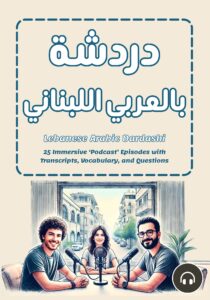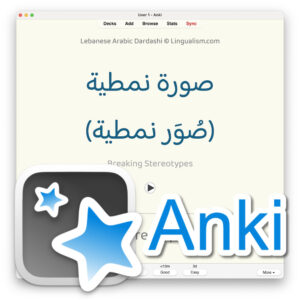Table of Contents
Introduction to the ‘Beyond the Meaning’ Series for Turkish Learners
Welcome to the first post in the ‘Beyond the Meaning’ series for Turkish learners. Throughout this series, we will discover a new word or expression in each post, diving into its etymology and the semantic changes it has undergone, along with possible contexts, related phrases, and grammar rules. We will not only learn a new word but also gain insights into the Turkish language and culture through the way the word (kelime) is used. That being said, anyone who has no problem with the Turkish alphabet and has basic grammar knowledge may benefit since we aim to provide clear explanations for everyone, though it will primarily suit intermediate learners. So, let’s get started with our first word kütüphâne.
Exploring the Etymology of ‘Kütüphâne’
Kütüphâne is a hybrid word, meaning it is etymologically derived from at least two languages, inherited from the Persian word كتبخانه (library), consisting of kütüp + hâne. Kütüp is the plural form of the Arabic word كِتَاب (book, /ki.taːb/), which is كُتُب (/ku.tub/), and hâne comes from the Persian word خانه (home, xāne). Although the plural form kütüp is not used in Turkish, the Arabic word for the book was transferred into many other languages, Swahili, Hindi, many Turkic languages and so on, and as kitap (book) into Turkish. Hâne, on the other hand, was adopted in Turkish both as a noun meaning ‘home’ and as a locative suffix indicating places where specific activities occur.
Understanding the Hybrid Nature of Turkish Words
Before moving on to other words with the locative suffix -hâne, it is important to mention that kütüphâne is just one of the many hybrid words in Turkish, usually originating from Persian and Arabic words. To demonstrate how deeply Turkish was influenced by Persian and Arabic, a very commonly used word halbuki (conj. meaning whereas) may be taken as an example, made of three morphemes from three languages: hâl (Arabic; situation, condition) + bu (Turkish; this) + ki (Persian; relative pronoun).
The Influence of Persian and Arabic on Turkish Vocabulary
Regarding the locative suffix, the rule of thumb in the construction of these hybrid words is, if the first word ends with a vowel to delete the letter h in -hâne and the vowel. So it goes like this: hasta (sick (one)) + hâne = hastâne (lit. sick person house, hospital, similar to Krankenhaus in German), yemek (food) + hâne = yemekhâne (lit. food place, dining hall). The next time you see a word with -hâne/âne, you can recognise a place is indicated.
Common Words with the Locative Suffix -hâne in Turkish
So, here are the most common words with the locative suffix -hâne:
- Hastâne 🏥👨⚕️(hospital, hasta (sick (person)) + hâne, the last vowel and the letter h is dropped for an easier pronunciation)
- Yemekhâne 🍽️🍛 (dining hall, yemek (food) + hâne)
- Hapishâne 🔒 (jail/prison, hapis (imprisonment) + hâne, the shorter word hapis may be used instead.)
- Abdesthâne 🕌 (synonym: şadırvan, abdest + hâne, the room or small building near a mosque in which the Muslims perform Abdest (or as the original word in Arabic wudu) referring to washing some parts of the body using water for some particular prayers and acts of worship.)
- Postâne 📬(post office, posta (post) + hâne.)
- Pastâne 🥐🧁(bakery/cake shop, pasta (cake) + hâne, where traditional Turkish pastries and sweets can be found.)
- Dershâne 👨🏫🏫(cram school, the paid institutions helping students prepare for the entrance exams into high schools (LGS in Turkey) and universities (YKS), ders (subject, lesson) + hâne)
- Kumarhâne 🎰 (casino, kumar (gamble) + hâne)
- Yatakhâne 🛌 (dormitory room, yatak (bed) + hâne, dormitory: yurt)
- Misafirhâne 🛏️🆓 (guest house, misafir (guest) + hâne, building to temporarily provide accommodation for a low cost.)
- Yetimhâne 👶 (orphanage, yetim: a child who lost his father, öksüz: a child who lost his mom; however, the word yetim may be used as a broader phrase to refer to children whose parents are dead.)
- Kahvehâne ☕🫖 (coffeehouse, kahve + hâne, traditional Turkish coffeehouses people go to drink mainly tea and Turkish coffee and socialise by playing tavla (backgammon), iskambil (playing cards), or through sohbet (chitchat). Especially old, retired people spend their time in kahvehâne.)
- Kıraathâne ☕🫖 (kıraat (reading, from Arabic) + hâne, similar to kahvehâne. This place and kahvehâne deserve another separate blog due to their interesting historical background; as how coffee emerged as a popular drink during the Ottoman Empire and was transferred into other areas of the world, why it was restricted based on religious-political reasons, etc.)
There are also many district names with this suffix, Tophane (both in İstanbul and Bursa), Baruthane, Kağıthane, Gümüşhane (a city in the Black Sea Region), and many more. It is also worth mentioning that the h is generally dropped in spoken language. At the same time, while I have personally used a circumflex (the diacritic sign above some vowels: â, î, known in Turkish as düzeltme işareti (correction mark) or in spoken language şapka (literally hat) for the letter a in the -hâne suffix, the official linguistic authority TDK (Turkish Language Association – Türk Dil Kurumu) uses it when the absence of şapka causes a misunderstanding. However, there are always different usages of the circumflex, even among native speakers, and a so-called “mistake” may be made in a news report or an academic paper. In short, there is some debate over the practice, and I prefer using it to highlight that the vowel is lengthened and originally derived from Arabic or Persian (as another private linguistic authority Kubbealtı prefers alike).
Practical Examples: Using -hâne Suffix in Sentences
Here is a small text to practice the words with the locative suffix -hâne:
Sabah yetimhâneden çıkarım ve dershâneye giderim. Dershânede YKS sınavına çalışırım. Sonra kahvehâneye giderim ve çay içerim. Eğer karnım acıkmışsa pastâneden poğaça alırım. Veya yetimhânenin yemekhânesinde öğle yemeği yerim. Akabinde, hapishânenin yanındaki camiye giderim. Abdesthânede abdest alırım ve namaz kılarım. Daha sonra, yatakhâneme dönerim. Bazı arkadaşlarım maalesef kumarhâneye giderler, ders çalışmazlar. Onlara üzülürüm. Bir oda arkadaşım PTT’de çalışır, diğer oda arkadaşım hastânede doktordur. Akşam gelirler ve sohbet ederiz.
(In the morning, I leave the orphanage and go to the cram school. I study for the YKS exam in the cram school. Then I go to the coffeehouse and drink tea. If I’m hungry, I buy poğaça from the bakery. Or I have lunch in the orphanage’s dining hall. Afterwards, I go to the mosque next to the prison. I perform ablution/abdest and pray in the ablution room. Afterwards, I return to my dormitory room. Unfortunately, some of my friends go to casinos and do not study. I feel sorry for them. One of my roommates works at PTT, and the other roommate is a doctor at the hospital. They come in the evening, and we chat.)
Additional Vocabulary for Turkish Learners
- Poğaça: a traditional Turkish savory pastry, one of the main products in bakeries and patisseries. Mainly found in the Balkans, Anatolia, and the Levant region. Different types (with cheese, olive, potato, chocolate, and so on) are present, typically preferred for a quick breakfast while going to work. 🥟
- PTT: the national post and telegraph directorate in Turkey. They work in the field of banking, mail and cargo with yellow branch offices everywhere. 📨
- Öğle: noon, midway; öğle yemeği: lunch, öğleden sonra: afternoon, öğle üstü: around noon. 🌇
- Sabah/Akşam: morning/evening, both as a noun and adverb. Sabahleyin/akşamleyin is also used as an adverb. 🌅🌃
- Abdest almak: to make wudu, perform ablution. 🚿
- Üzülmek: to feel sorry, to be sad. 😔☹️
- Sohbet etmek: to chat, have a talk/conversation 🗨️💬
- Karnı acıkmak: to feel hungry, aç olmak, to be hungry, or only the verb acıkmak with the same meaning. 😋
- Namaz kılmak: to perform the Islamic prayer known as salah or salaat. The principal and obligatory ritual prayer for Muslims, five times a day facing Mecca. Both namaz and abdest are derived from Persian, while some other languages have taken the original Arabic words for abdest and namaz (wudu and salah). That is, the Turks have embraced Islam through their old neighbours, the Iranians. How that affected the Turkish vocabulary related to Islamic terms is a topic of another blog as well. 📿🕌🕋
- Maalesef: unfortunately. 🙁
- Eğer: if. It is not necessary to use eğer in order to make a conditional sentence since there is the suffix -se/-sa attributed to verbs with the same meaning. However, it can be used to stress the meaning: Eğer hastâneye gidersen… = Hastâneye gidersen… = If you go to the hospital…
- Sonra/akabinde/daha sonra: after, afterwards.
- Yanındaki: next to (you/her/him/it), yan: side, used as an adjective: Okulun/parkın/kütüphânenin yanındaki cami/hapishâne/kıraathâne (The mosque/jail/kıraathâne next to the school/park/library)
This concludes the first post in our ‘Beyond the Meaning’ series. I hope you found it helpful in your journey to mastering Turkish. If you have any questions or suggestions regarding future topics, I’d love to hear them in the comments below. Stay tuned for more insightful posts and have an enjoyable learning experience.
Kolay gelsin 🙃








